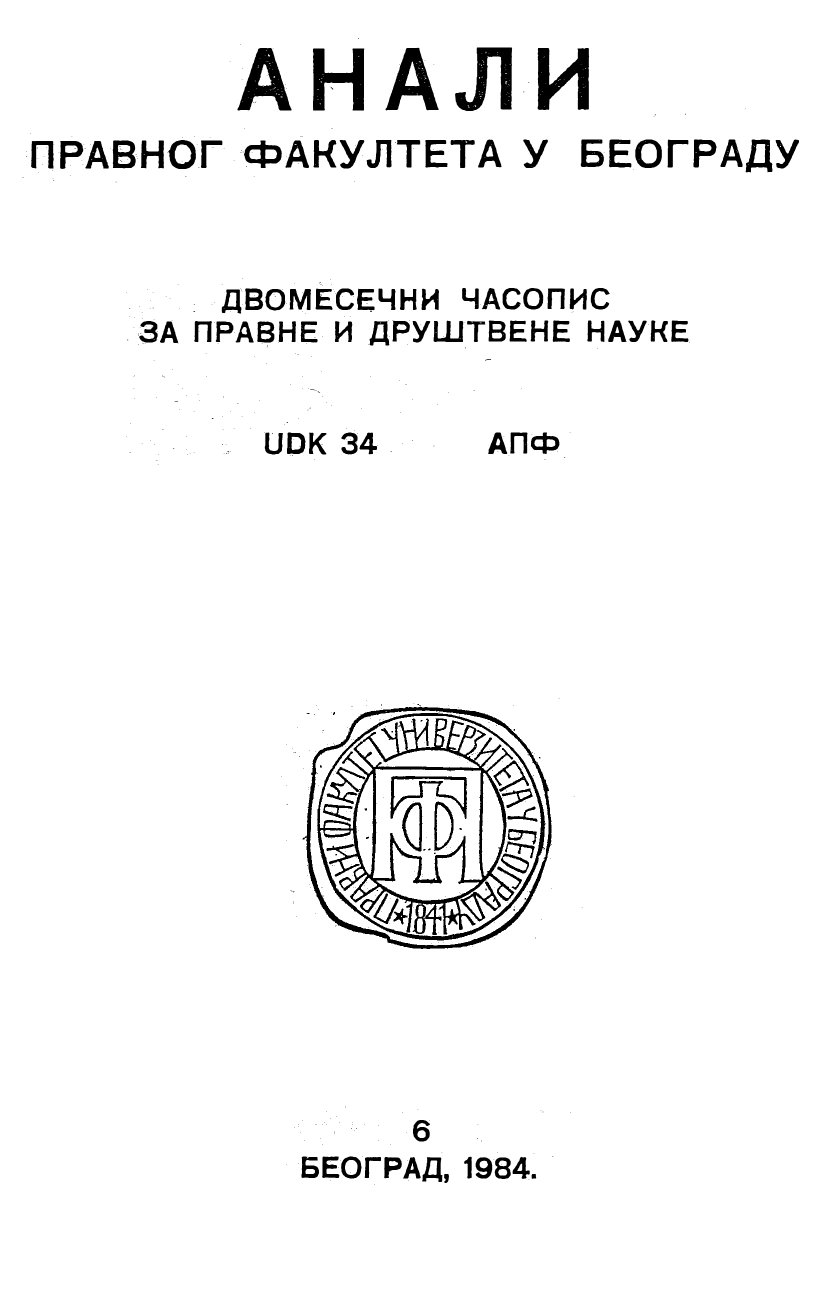НЕДИСКРИМИНАЦИЈА И ЗАШТИТА МАЊИНА У МЕЂУНАРОДНОМ ПРАВУ
NON — DISCRIMINATION AND PROTECTION OF MINORITIES IN INTERNATIONAL LAW
Author(s): Momir MilojevićSubject(s): Social Sciences, Law, Constitution, Jurisprudence, International Law, Sociology, Ethnic Minorities Studies
Published by: Правни факултет Универзитета у Београду
Summary/Abstract: The international protection of human rights encompasses all human beings without any discrimination in which context the protection of minorities finds its place. The principle of non-dscrimination and the protection of minorities complement each other because each of them is insufficient for ensuring the effective realization of human rights in multinational societies. Historical development of the protection of minorities proves that this protection was partially based on the principle of non- discrimination, the word »discrimination« was for the first time used in the treaties concluded after First World War. For this reason the principle of non-discrimination is considered »one of the basic principles of the protection of minorities developed by international law before the creation of the United Nations«. Equal rights mean equal duties of all citizens toward the States in which they live. Consequently the minorities must be considered as an integral part of the population of these States and their constitutive element. In that way the protection of minorities is also a part of the system of international protection of human rights as wll as of the security of each State. On the other hand the most important international documents, such as the Charter of the United Nations the Constitution of UNESCO, international covenants on human rights and the Final Act of the Conference on Security and Co-operation in Europe recognize the protection of human rights, including the protection of minorities, as an element of international peace and security. For the achievement of this purpose the efforts of all are necessary, i.e. of the majority and of the minority. That is impossible without their equality. It involves the right to be different, because without it there is no democracy. Therefore the existence of minorities expresses the force and not the weakness of the society. It reflects the universal interdependence of the contemporary world. In the democratic society minorities are not an object of disputes but the bridge linking peoples and cultures, a source of spiritual wealth and the most firm foundation of friendship, peace, cooperation and security in the world.
Journal: Анали Правног факултета у Београду
- Issue Year: 32/1984
- Issue No: 6
- Page Range: 792-813
- Page Count: 22
- Language: Serbian

